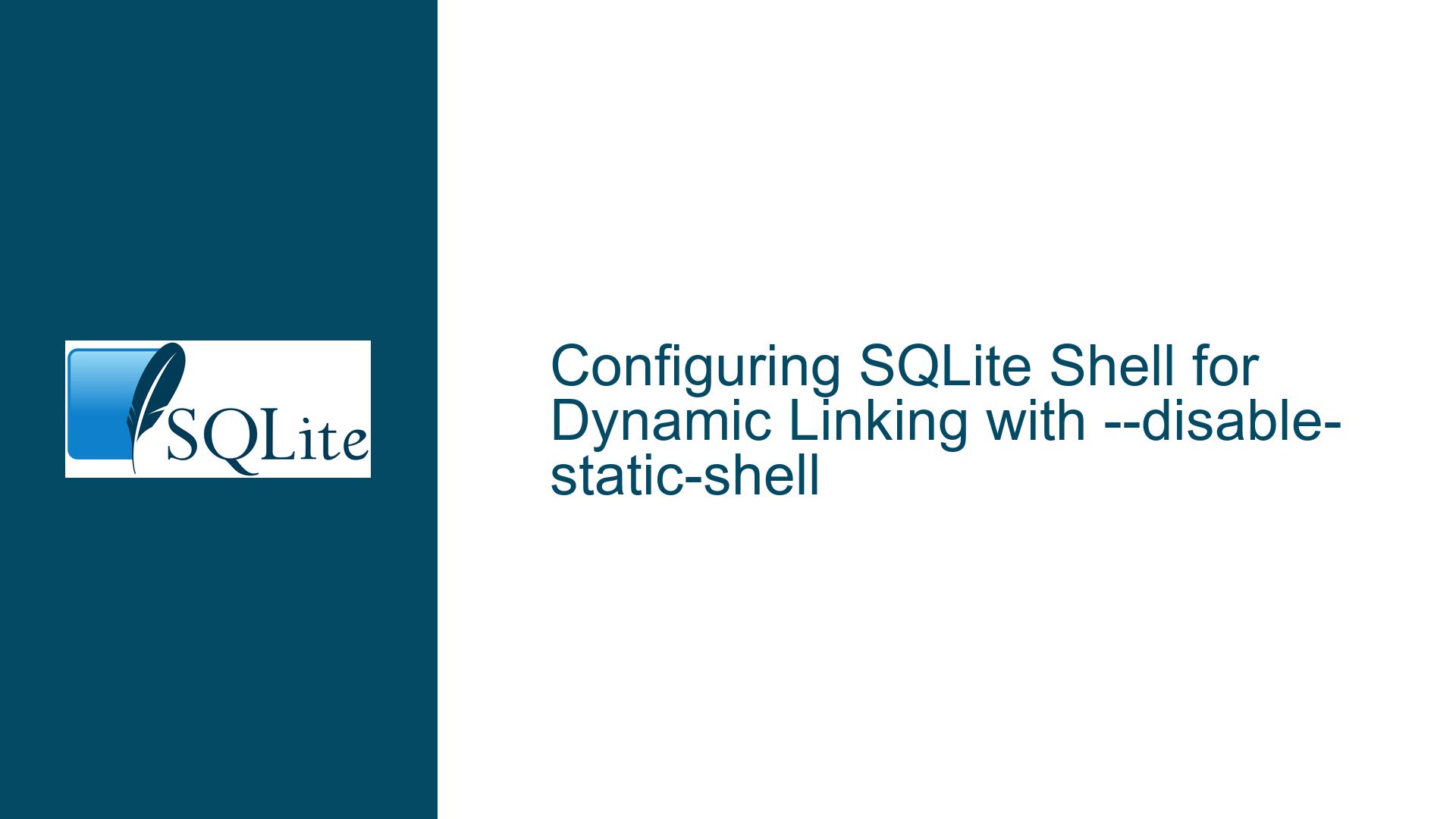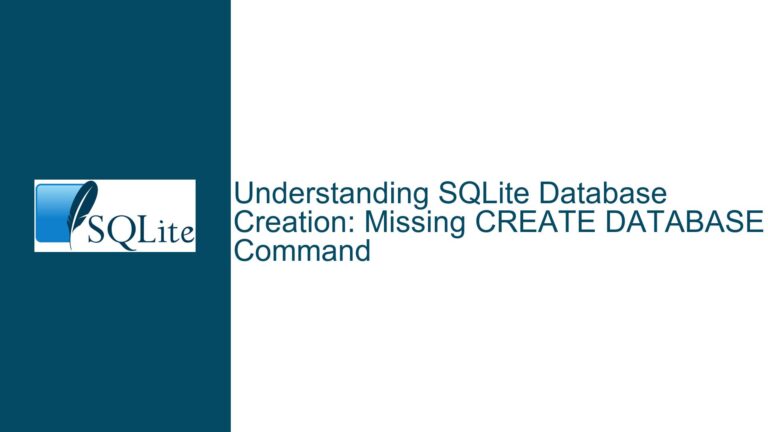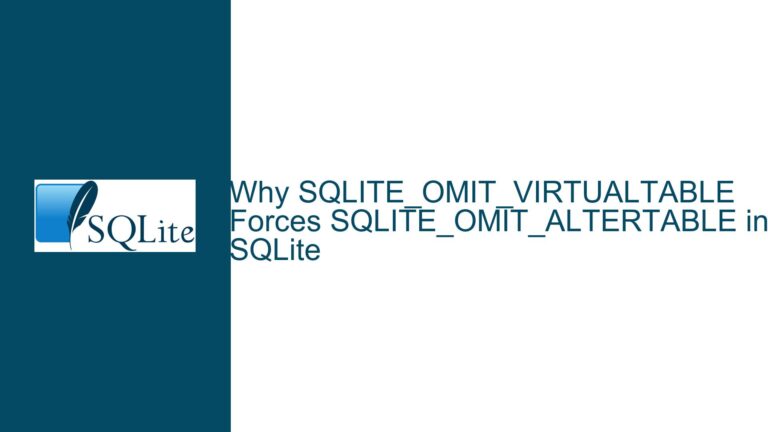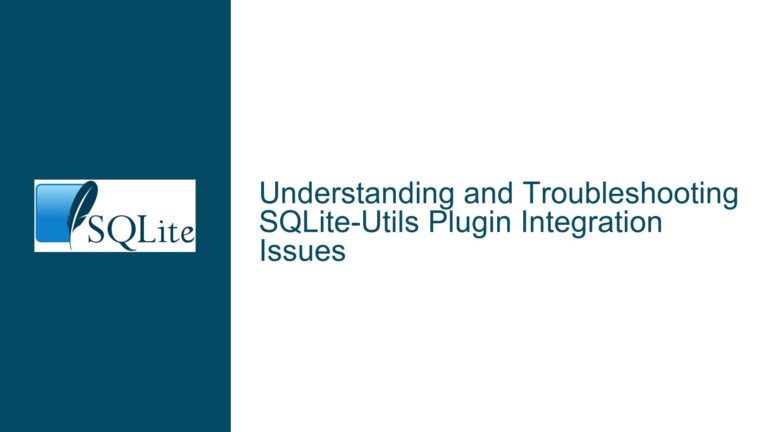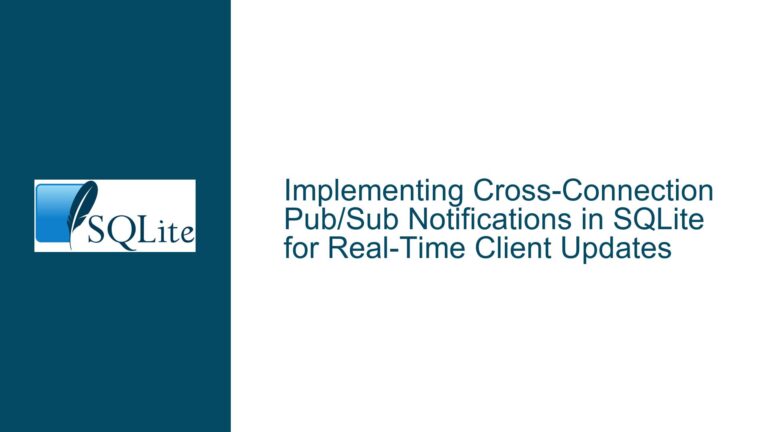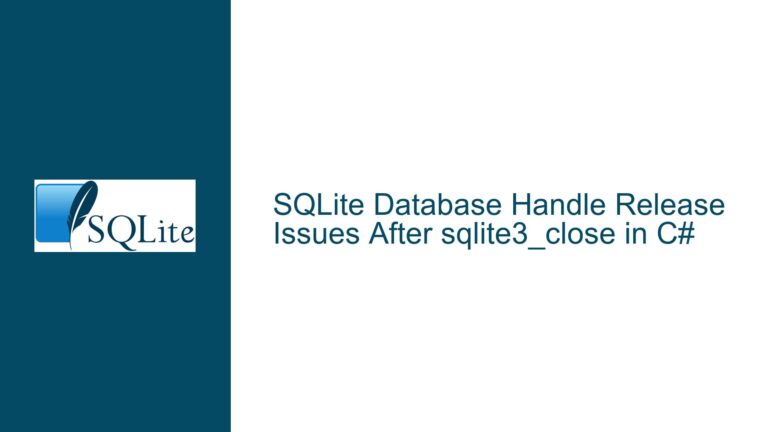Configuring SQLite Shell for Dynamic Linking with –disable-static-shell
SQLite Shell Size Increase Due to Static Linking in Version 3.49.0
In SQLite version 3.49.0, users who previously configured the SQLite shell to dynamically link to the shared library libsqlite3.so.0 using autoconf encountered a significant increase in the size of the SQLite shell binary. This size increase is attributed to the shell being statically linked by default in the new autosetup build system. The static linking embeds the entire SQLite library (sqlite3.c) into the shell binary, resulting in a binary that is more than three times larger than its dynamically linked counterpart. This behavior is a departure from the previous versions (3.47.2 and earlier), where dynamic linking was the default configuration when using autoconf.
The primary concern for users is the inefficiency introduced by the larger binary size, which can impact deployment, especially in environments with limited storage or where multiple instances of the SQLite shell are required. The static linking also reduces the flexibility of updating the SQLite library independently of the shell, as the library is now embedded within the shell binary. This issue is particularly relevant for users who rely on dynamic linking to manage dependencies and reduce binary sizes.
Loss of Dynamic Linking Capability in Autosetup Build System
The inability to configure the SQLite shell for dynamic linking in version 3.49.0 stems from the transition from the autoconf build system to the autosetup build system. In the autoconf build system, users could specify the --disable-static-shell option to ensure that the SQLite shell dynamically linked to the shared library libsqlite3.so.0. However, this capability was inadvertently lost during the migration to autosetup, as the dynamic linking configuration was not part of the canonical build process used by the SQLite development team.
The autosetup build system, which is now the default for SQLite, was designed with a focus on the canonical build process, where the SQLite shell is statically linked by default. This design decision was made because the SQLite development team primarily uses the static linking approach in their internal builds. As a result, the --disable-static-shell option, which was previously available in autoconf, was not initially ported to the autosetup build system. This omission left users without a straightforward way to configure the SQLite shell for dynamic linking in version 3.49.0.
Additionally, the --dynlink-tools option, which was introduced in the autosetup build system, was mistakenly perceived as a potential replacement for --disable-static-shell. However, this option is not intended for general use and is only applicable in specific testing scenarios within the full/canonical build tree. Attempting to use --dynlink-tools in the autoconf bundle results in an error, as the option is not recognized by the build system.
Reintroducing Dynamic Linking with –disable-static-shell in SQLite 3.49.1
To address the issue of static linking in the SQLite shell, the SQLite development team reintroduced the --disable-static-shell option in version 3.49.1. This option allows users to configure the SQLite shell to dynamically link to the shared library libsqlite3.so.0, effectively restoring the functionality that was available in earlier versions of SQLite. The reintroduction of this option ensures that users can once again build a smaller, more efficient SQLite shell binary that relies on dynamic linking.
The process of configuring the SQLite shell for dynamic linking involves using the --disable-static-shell option during the build configuration step. When this option is specified, the build system links the SQLite shell against the shared library libsqlite3.so instead of embedding the entire SQLite library (sqlite3.c) into the shell binary. This results in a significant reduction in the size of the SQLite shell binary, as demonstrated by the following example:
$ ./configure --disable-static-shell --prefix=$HOME CFLAGS=-O0
$ make sqlite3
$ ldd sqlite3
libsqlite3.so => ./libsqlite3.so (0x000073183f691000)
$ make install
$ rm libsqlite3.so
$ ldd ~/bin/sqlite3
libsqlite3.so => /home/stephan/lib/libsqlite3.so (0x00007f7f257ee000)
In this example, the --disable-static-shell option is used during the configuration step, followed by the compilation and installation of the SQLite shell. The ldd command is then used to verify that the SQLite shell is dynamically linked to the shared library libsqlite3.so. The final size of the SQLite shell binary is significantly smaller compared to the statically linked version, as shown in the following comparison:
| Configuration | Binary Size |
|---|---|
Without --disable-static-shell | 1074152 B |
With --disable-static-shell | 275512 B |
The reintroduction of the --disable-static-shell option in SQLite 3.49.1 provides users with the flexibility to choose between static and dynamic linking based on their specific requirements. This option is particularly beneficial for users who prioritize binary size and dependency management, as it allows them to maintain a smaller SQLite shell binary that can be updated independently of the SQLite library.
In conclusion, the issue of static linking in the SQLite shell was addressed in version 3.49.1 with the reintroduction of the --disable-static-shell option. This option enables users to configure the SQLite shell for dynamic linking, resulting in a smaller binary size and greater flexibility in managing dependencies. Users who encounter issues with static linking in SQLite 3.49.0 are encouraged to upgrade to version 3.49.1 and use the --disable-static-shell option to achieve the desired configuration.
